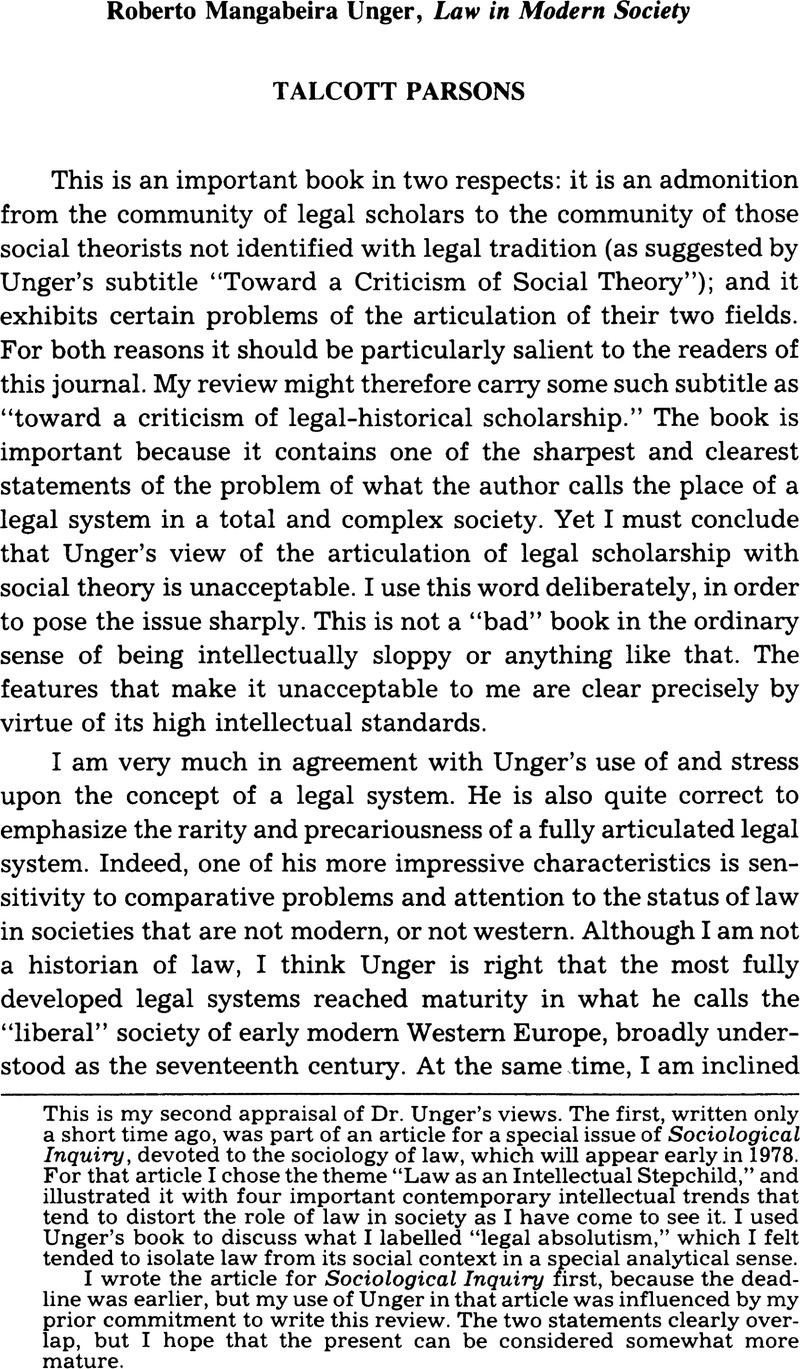Published online by Cambridge University Press: 05 August 2024

This is my second appraisal of Dr. Unger's views. The first, written only a short time ago, was part of an article for a special issue of Sociological Inquiry, devoted to the sociology of law, which will appear early in 1978. For that article I chose the theme “Law as an Intellectual Stepchild,” and illustrated it with four important contemporary intellectual trends that tend to distort the role of law in society as I have come to see it. I used Unger's book to discuss what I labelled “legal absolutism,” which I felt tended to isolate law from its social context in a special analytical sense. I wrote the article for Sociological Inquiry first, because the deadline was earlier, but my use of Unger in that article was influenced by my prior commitment to write this review. The two statements clearly overlap, but I hope that the present can be considered somewhat more mature.
1. Unger's use of Max Weber's work, given his obvious familiarity with it, seems to me somewhat curious. In his discussion of method, which is clearly very important to him, he has a number of references to Weber's discussion and use of ideal types. But among the “classical” social theorists, Weber was unusual in his concern with law: he had originally been trained as a lawyer and wrote a major monograph on the sociology of law. Despite this, Unger's book does not contain a single reference to Weber's writings on law, although it refers to other parts of his work seven times. I simply fail to understand this striking selectivity.
2. This tension, again, was strongly highlighted by Max Weber, especially in his distinction between “formal” and “substantive” rationality in law, which occupies a central role in his theory. This makes it all the more strange that Unger does not cite Weber in this regard.